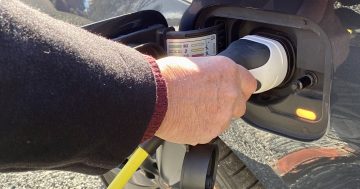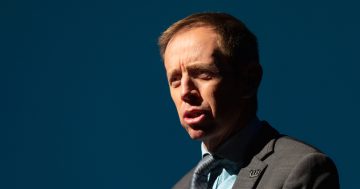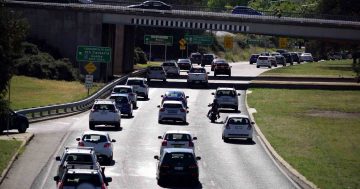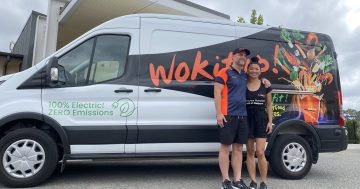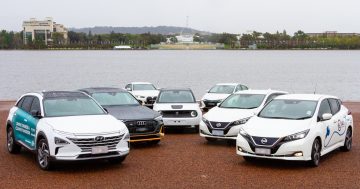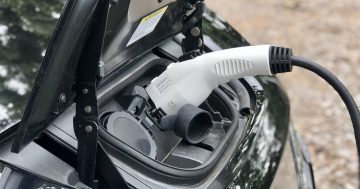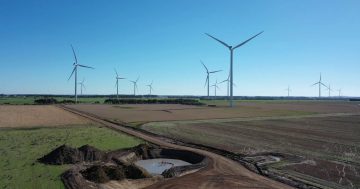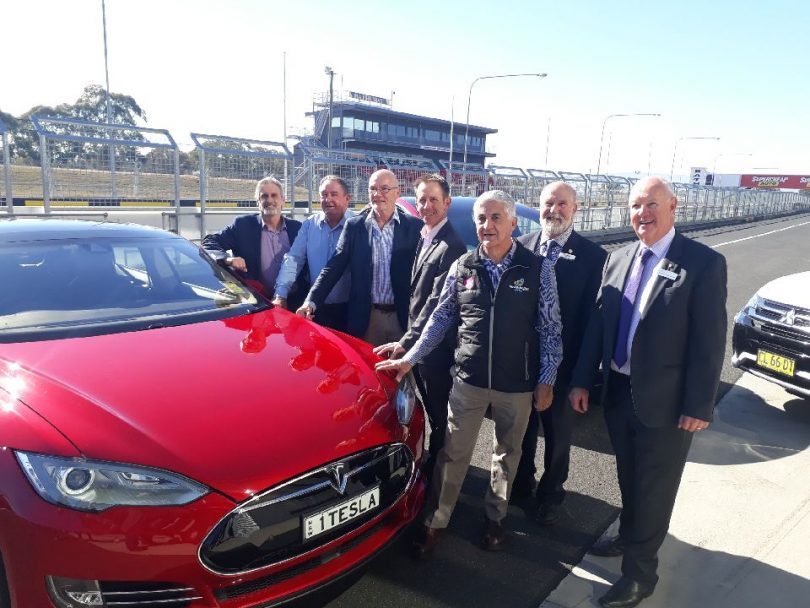
ACT Climate Change and Sustainability Minister Shane Rattenbury with regional mayors at Mt Panorama with the latest electric vehicle. Photo: Climate Council.
The ACT Government will spend nearly half a million dollars to have 50 electric vehicle charging stations installed at Government sites across the city in 2018-19.
Minister for Climate Change and Sustainability Shane Rattenbury announced the Budget funding yesterday (29 May) from an event at Mt Panorama in Bathurst.
The Minister said the $456,000 allocation marked a major step towards achieving the ACT’s zero net emissions by 2045 target, and follows the Government’s recently announced Transition to Zero Emissions Vehicles 2018-2012 Action Plan, which included requirements that all new multi-unit and mixed use developments in the ACT have vehicle charge points and all newly leased Government vehicles be emissions free from 2020-21.
ACT Government’s electric vehicle action plan
ACT Minister for Climate Change Shane Rattenbury MLA says the ACT Government’s electric vehicle action plan shows it is getting serious about taking practical steps to reduce transport emissions and move towards zero emissions. In this clip from The Climate Council, Mr Rattenbury outlines the plan to ensure the Territory is ready for electric vehicles, and explains how 50 new charging stations will ensure the Government’s fleet of 500 vehicles is well supported with the right infrastructure.
Posted by The RiotACT on Tuesday, May 29, 2018
Speaking at the Bathurst E-1000 Cities Power Partnership roundtable, Mr Rattenbury said the move was proof that local jurisdictions were getting the job done when it came to delivering real action on climate change.
“With transport expected to create over 60 per cent of the ACT’s emissions by 2020, mostly from private cars use, we’re acting to ensure that the Territory is well-placed to transition towards electric vehicle use – in line with global market trends,” he said.
“As a major employer in the Territory, with a significant fleet of vehicles, it is also important that the ACT does our part in promoting sustainable travel.”
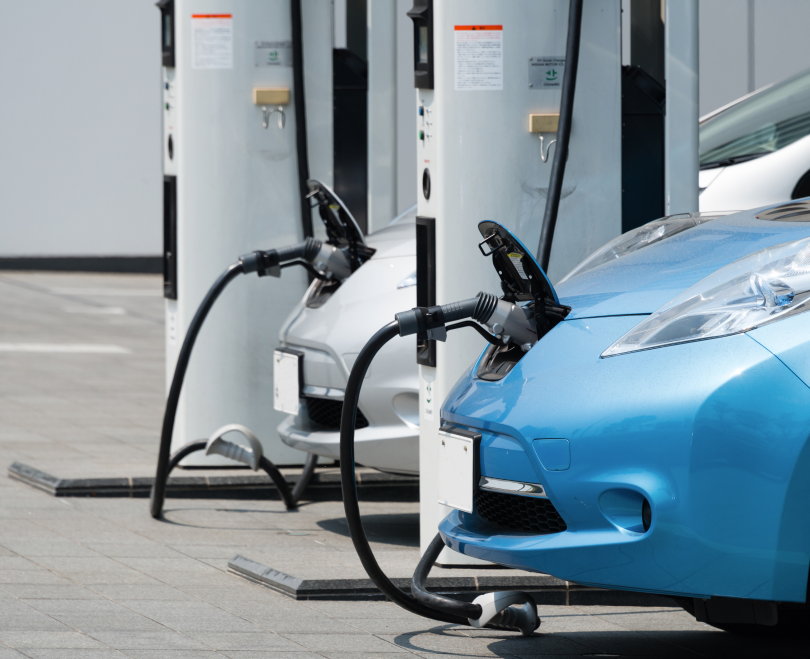
A number of charging stations would also be installed at Government sites across the city in 2018-19. File photo.
Mr Rattenbury said the Government had already begun working with private sector partners on the installation project and to support public awareness of electric vehicle use.
A spokesperson said the ACT Government has been approached by the Electric Vehicle Council, Hydrogen Mobility Australia, the NRMA and a number of major car manufacturers regarding electric and fuel cell vehicles, and was continuing to meet with them to formalise arrangements.
The location of the charging stations would be determined in due course.
The spokesperson said there were around 230 battery electric passenger vehicles registered in the ACT, and in 2017 there were 17 battery electric and seven plug-in hybrid vehicles in the ACT Government fleet.
“We are anticipating that around 50 new electric vehicles will replace existing conventional Government fleet vehicles in 2019-20, and that around 80 to 150 new electric vehicles will replace conventional fleet vehicles annually from 2021-22 until the entire passenger vehicle fleet has transitioned to zero emissions vehicles (where fit for purpose),” the spokesperson said.
“As new vehicles come onto the market, it is also expected that private take up of electric vehicles will increase rapidly over the next few years.”
Mr Rattenbury said that the ACT was keen to work with other councils within the region to increase EV uptake.
“Regional cooperation is key to creating a thriving electric vehicle network, and we’re looking to explore opportunities for charging networks and bulk fleet purchases with other local governments,” he said.
“Tackling climate change means tackling transport pollution, and zero emission vehicle technology is a key part of this.”
The Climate Council’s Cities Power Partnership brought local governments together from New South Wales, Victoria and the ACT to take the latest electric cars for a spin on the iconic Mt Panorama racetrack, followed by a forum on how local government can supercharge EVs across regional Australia.
Councils getting behind the wheel include Bathurst, Orange, Parkes, Cabonne, and Strathbogie, as well as the ACT Government.
The Cities Power Partnership is a free national program created by the Climate Council that celebrates and accelerates the pollution reduction and clean energy successes of Australia in towns and cities.












